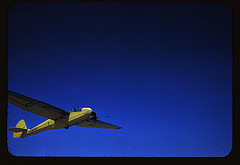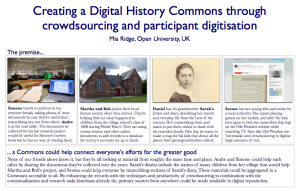I've been awarded a CENDARI Visiting Research Fellowship at Trinity College Dublin for a project called 'Bridging collections with a participatory Commons: a pilot with World War One archives'. Here's Trinity's page about my Fellowship, which runs until mid-December. I've decided to be brave and share my thoughts and actions throughout the process, so I thought I'd start as I mean to go on and post my proposal (1500 words, below). CENDARI is a 'research infrastructure project aimed at integrating digital archives for the medieval and World War One eras' which 'aims to leverage innovative technologies to provide historians with the tools by which to contextualise, customise and share their research' (source) so this research fellowship very neatly complements my PhD research.
You can contact me by leaving a comment below, or via my contact page. If you'd like to follow my progress, you can sign up for (very infrequent) updates at MailChimp: http://eepurl.com/VUXEL or keep an eye out for posts tagged 'CENDARI Fellowship' on my blog, Open Objects.
Updates so far:
- my first update was 'Defining the scope: week one as a CENDARI Fellow' (September 26);
- my second was 'Linking lived experiences of WWI through battalions?' and the related post 'Private Albert Henry Bailey, service number 13/970a' (October 10).
- I've also posted 'Linking lived experiences of the First World War': possible goals and a bunch of technical questions' (October 15) and the related 'In which I am awed by the generosity of others, and have some worthy goals' (October 17)
- 'Moving forward: modelling and indexing WWI battalions' (October 31)
- I gave a keynote at New Zealand's National Digital Forum conference on 'Collaborative collections through a participatory commons'; the video gives a lot of background to the project
- 'Three ways you can help with 'In their own words: collecting experiences of the First World War' (and a CENDARI project update)' (December 4) summarised a few weeks' work and decisions
- I gave a lecture at Trinity College Dublin on ‘A pilot with public participation in historical research: linking lived experiences of the First World War’
- I set up a wiki to link personal accounts to specific military units: http://collaborativecollections.org/WorldWarOne – this is where most of my work happened in the last month or so of the project

